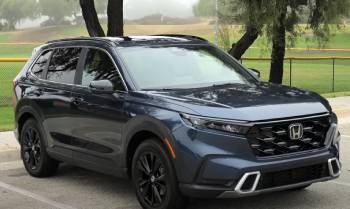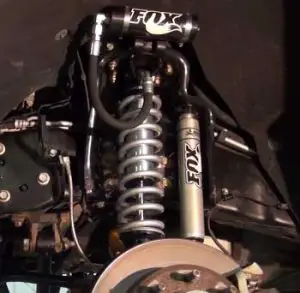If you’re caught in the age-old dilemma of Honda CR-V vs Toyota Corolla Cross, don’t worry—you’re not alone. These two are like the Coke and Pepsi of the compact SUV world.
Sure, they’re not the only players in the game, but they’re darn popular ones. So how do you decide? Let’s dig in and find out.
A Brief Comparison Table
| Feature | Honda CR-V | Toyota Corolla Cross |
| Engine | 1.5-liter turbocharged 4-cylinder | 2.0-liter 4-cylinder |
| Horsepower | 190 hp | 169 hp |
| Interior Space | 75.8 cubic feet (with rear seats folded) | 65.5 cubic feet (with rear seats folded) |
| Safety Features | Honda Sensing available in most trims | Toyota Safety Sense standard |
| Infotainment Screen | 7-inch Display Audio touchscreen | 7-inch or optional 8-inch touchscreen |
| Apple CarPlay/Android Auto | Standard | Standard |
| Fuel Economy (City) | ~28 mpg | ~30 mpg |
| Fuel Economy (Highway) | ~34 mpg | ~32 mpg |
| Starting Price | Typically higher | More affordable |
Honda CR-V: The Quintessential Family SUV

Pros
- Roomy Interior
The CR-V offers ample space for you, your kids, and the family pet. Even the trunk can swallow a week’s worth of groceries like it’s no big deal.
- Fuel Efficiency
The Honda CR-V comes with an efficient turbocharged engine that’s a friend to both your wallet and Mother Nature.
- Safety First
Honda Sensing—a suite of safety features—is available in most trims, ensuring a more secure ride for you and your family.
Cons
- Pricier Base Model
You have to pay a premium for the CR-V’s base model, especially compared to the Toyota Corolla Cross.
- Infotainment Complexities
While Honda has come a long way, their infotainment system could still be a tad more user-friendly.
Also Read: Differences Between Mastercraft Courser Trail HD And BFG KO2 Tires.
Toyota Corolla Cross: The New Kid on the Block

Pros
- Affordability
If your budget leans more towards “cash-strapped millennial” than “tech mogul,” the Corolla Cross is a great value pick.
- Reliability
Toyota has a solid reputation for durability. The Corolla Cross is basically the SUV version of the tried-and-true Corolla sedan.
- Tech-Savvy
Standard Apple CarPlay and Android Auto make it easy to plug in your phone and go.
Cons
- Smaller Cargo Space
While it’s a comfy ride, the Corolla Cross doesn’t offer as much cargo space as the CR-V.
- Lower Towing Capacity
If you’re planning to haul a boat or a couple of jet skis, the Corolla Cross isn’t going to be your first choice.
The Real User Experience: What’s It Like to Own One?
- Honda CR-V
Imagine gliding down the highway, kids arguing in the back, but you’re calm because Honda Sensing is looking out for you. That road trip? A breeze with your spacious trunk and fuel-efficient engine.
- Toyota Corolla Cross
Picture yourself cruising through city streets, blasting your favorite tunes through Apple CarPlay. Your friends marvel at your tech-savvy choice, and you smirk because you didn’t break the bank to own a reliable SUV.
Look, if you want a roomy, fuel-efficient family SUV with a strong focus on safety, the Honda CR-V is your go-to. But if you’re on a budget and don’t want to sacrifice reliability and tech features, the Toyota Corolla Cross is a stellar choice.
Key Differences Between Honda CR-V and Toyota Corolla Cross
Sure, both the Honda CR-V and Toyota Corolla Cross offer comfort and reliability, but there are nuances that could make one a better fit for you than the other. Let’s delve into those key differences.
Engine Performance: A Turbocharged Affair vs Steady Reliability
Honda CR-V
The CR-V features a 1.5-liter turbocharged 4-cylinder engine that provides 190 horsepower. This engine feels peppy, offering a quicker acceleration for those who crave a little speed and power on the freeway.
Toyota Corolla Cross
The Corolla Cross, on the other hand, sports a 2.0-liter 4-cylinder engine that churns out 169 horsepower. While it’s less powerful than the CR-V, it’s still adequate for city driving and occasional highway trips.
Interior Space: Room to Stretch vs Cozy Comfort
Honda CR-V
The CR-V wins hands down when it comes to space. Rear-seat legroom is generous, and the cargo area offers a whopping 75.8 cubic feet with the seats down. That’s enough to fit, say, a mountain bike or your ambitious Costco haul.
Toyota Corolla Cross
While not cramped, the Corolla Cross provides less space in the back seats and cargo area. You’re looking at about 65.5 cubic feet of cargo space when you fold down the rear seats—a solid number but less than what the CR-V offers.
Safety Features: Honda Sensing vs Toyota Safety Sense
Honda CR-V
Honda Sensing is a suite of safety technologies that includes features like adaptive cruise control, lane-keeping assist, and collision mitigation braking. It’s available in most CR-V trims.
Toyota Corolla Cross
Toyota isn’t far behind with its Toyota Safety Sense suite, which includes lane departure alert, adaptive cruise control, and pre-collision system. The Corolla Cross covers your basic safety needs but lacks some of the more advanced options found in higher-end CR-V trims.
Infotainment: A Mixed Bag vs Tech-Savvy
Honda CR-V
The CR-V comes with a 7-inch Display Audio touchscreen, Apple CarPlay, and Android Auto. The infotainment system, however, has been criticized for being a bit clunky and less intuitive.
Toyota Corolla Cross
The Corolla Cross impresses with its standard 7-inch (or optional 8-inch) touchscreen infotainment system. Both Apple CarPlay and Android Auto come standard, making it easier to sync your digital life with your car.
Fuel Economy: Efficiency All-Around
Honda CR-V
The CR-V excels in fuel economy, offering around 28 mpg in the city and 34 mpg on the highway (for front-wheel drive).
Toyota Corolla Cross
The Corolla Cross also posts respectable numbers, with approximately 30 mpg in the city and 32 mpg on the highway for the front-wheel-drive version.
Price: Affordability vs Premium Feel
Honda CR-V
The starting price for the base model of the CR-V is typically higher than the Corolla Cross. You do get a more premium feel, but it comes at a cost.
Toyota Corolla Cross
One of the biggest selling points for the Corolla Cross is its affordability. If you’re looking to save some bucks without compromising on basic features, this is a great option.
Also Read: Differences Between General Gmax AS-05 And Michelin Tires.
Frequently Asked Questions (FAQs)
The Honda CR-V is generally bigger, both in terms of interior space and cargo capacity. If you need that extra room, the CR-V is the way to go.
The Honda HR-V would be the closest competitor to the Toyota Corolla Cross, especially when considering size and price.
Given Toyota’s reputation for durability, the Corolla Cross is expected to be a highly dependable vehicle, though it’s relatively new to the market.
The Corolla Cross offers more cargo space and a more traditional SUV feel compared to the C-HR. Both are reliable, but the Corolla Cross edges out in terms of practicality.
With proper maintenance, a Toyota Corolla Cross could easily last 200,000 miles or more. That’s a lot of road trips!
The wait time can vary depending on your location and the dealer’s inventory. It’s best to consult your local dealership for the most accurate information.
Conclusion
Have you made up your mind yet? Whether it’s the Honda CR-V or the Toyota Corolla Cross, you’re making a solid choice. And remember, the best car for you is the one that fits your needs. Happy driving!
So, armed with these key differences, you should be well on your way to making an informed decision. Both the Honda CR-V and Toyota Corolla Cross offer compelling options, and your choice will likely hinge on what you prioritize more—be it space, safety features, tech-savviness, or the good old dollar bill.



